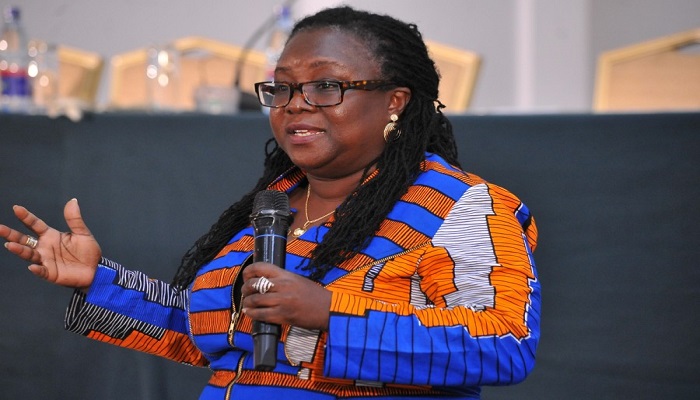The media must be supported to overcome the current economic challenges to enable it to continuously execute its role in the consolidation of the country’s democracy.
Ghanaian journalists work in challenging circumstances and lack the resources to provide the kinds of robust coverage necessary to perform some of their core functions.
Delivering an inaugural lecture at the University of Ghana (UG) on Thursday, April 29, 2022, Professor Audrey Gadzekpo, Former Dean, School of Information and Communication Studies, UG, said the Covid-19 pandemic had put the media under strain and “needs a bailout.”
“…as a key pillar of democracy, the media sector is too important to fail. It needs a bailout on several fronts,” she said.
“We must remember that the media is a public good and must be supported to survive. If for nothing else, they must survive in the interest of democracy,” she added.
Prof. Gadzekpo said in the wake of the seeming economic challenges, media businesses must adopt new models and find innovative ways to sustain their operations.
“The old model where commercial advertising is the primary source of media funding is obviously atrophied. Other sustainable types of funding from private philanthropy to private subsidies must be explored,” she said.
Prof. Gadzekpo, a Professor of Communication Studies, said media owners must also invest in building the capacities of their employees regularly and not solely rely on stakeholders to build the capacities of their journalists.
She observed that many journalists are “inexperienced, lacking requisite knowledge on the areas they cover and do not have a strong sense of history.”
Prof. Gadzekpo said in spite of the challenges facing the media, journalism practice in Ghana demonstrates a lot of potential.
Making reference to an Afrobarometer report, which indicated that trust in the media among the public has eroded, she said the media must conduct a self-introspection of its performance and work to address the problem.
“Without popular support for civic freedom, there is the risk that authoritarian-minded government would place further restrictions aimed at weakening the media’s ability to hold them accountable.
“If the media is expected to be guardians of democracy, they themselves must deepen their commitment to democratic ideals,” she said.
The media must work in support of public interest and in support of democratic development, she added.
Prof. Gadzekpo said efforts to improve media professional standards of ethics must be strengthened to ward off “hostile external regulations.”
She called on media companies and media associations such as the Ghana Journalists Association (GJA) and the Ghana Independent Broadcasters Association (GIBA) to encourage self-regulation and hold their employees and employers more accountable.
Latest Stories
-
Implementation committee inaugurated for establishment of Kumawu Nursing and Midwifery College
4 minutes -
POJOBA congratulates Defence Minister Omane Boamah, extends invitation for June Speech Day
9 minutes -
Palestine pushes for full UN membership, urges African support amid genocide accusations against Israel
17 minutes -
‘Not the NDC’s legacy, it’s ours’ – NPP’s Haruna Mohammed on election review tradition
23 minutes -
‘Mahama’s incompetent government will fall in 2028’ – NPP vows comeback
45 minutes -
Palestine seeks African solidarity against Israel’s invasion, draws parallels to Congo’s struggle
1 hour -
‘There will be cheaper and enhanced data bundles on 5 holidays this year’ – Sam George
2 hours -
‘Even NDC-owned radio stations weren’t spared’ – Sam George says suspensions were legal, not targeted
2 hours -
High Court fixes July 15 to commence Dram Oil, Deloitte and Touche trial
3 hours -
California becomes first state to sue over Trump tariffs
3 hours -
US government sues Maine over refusing to ban transgender athletes
3 hours -
US actress Michelle Trachtenberg died from diabetes complications
3 hours -
Bail extended to accused persons are free, don’t pay money – Judge cautions
4 hours -
Two suspects arrested in Asankragua aver attempted robbery
4 hours -
IT technician jailed 6 months for defrauding auto mechanic
4 hours

